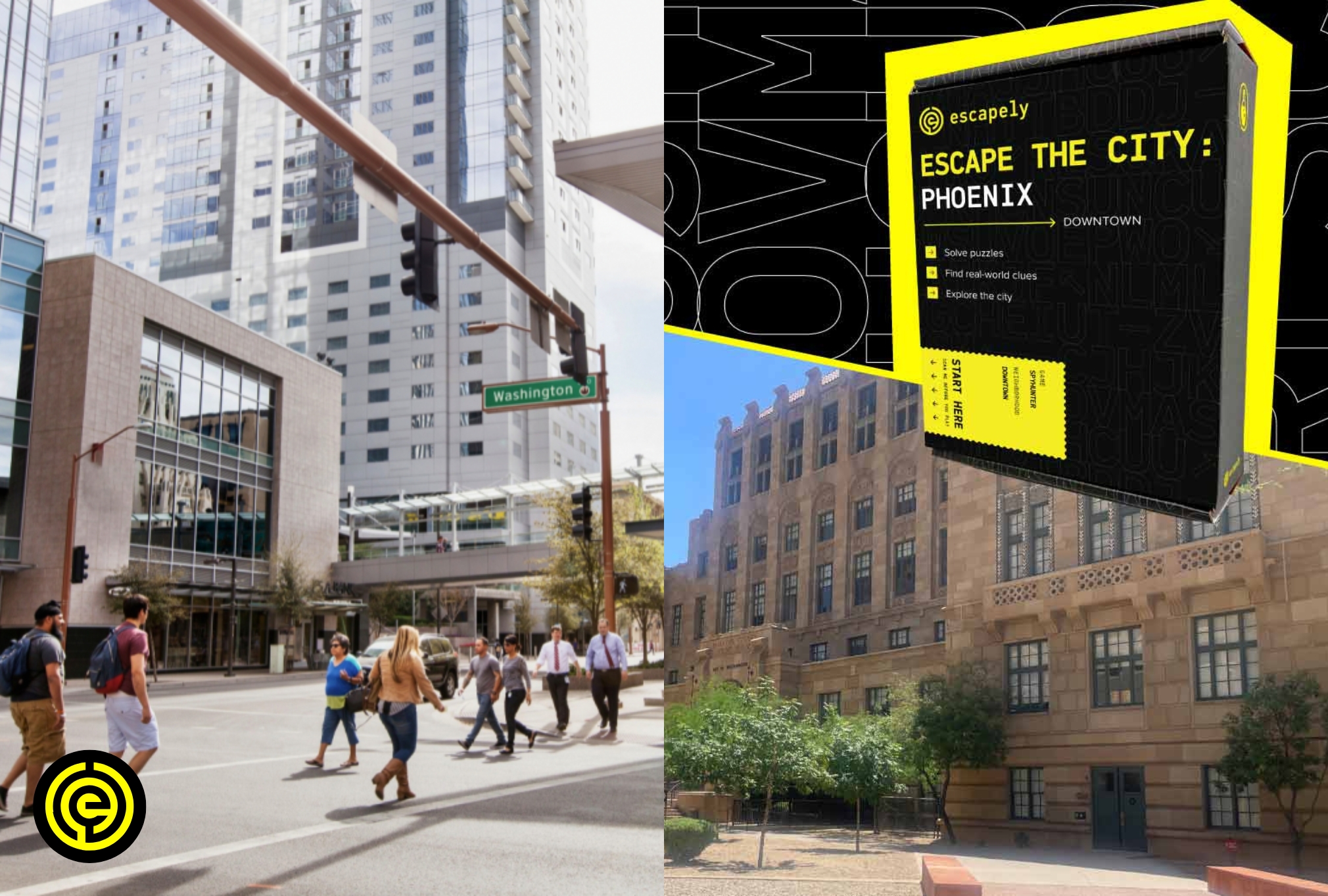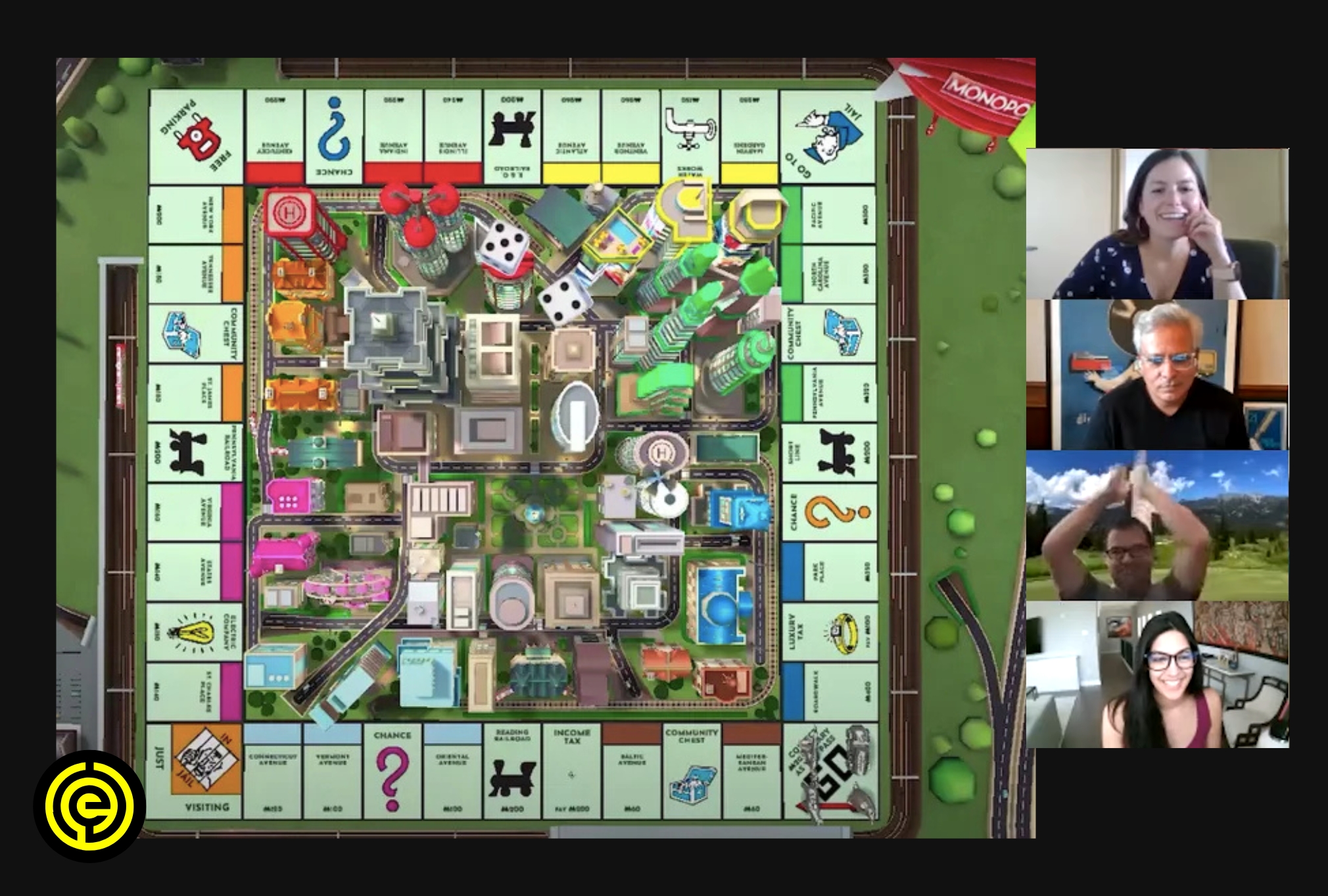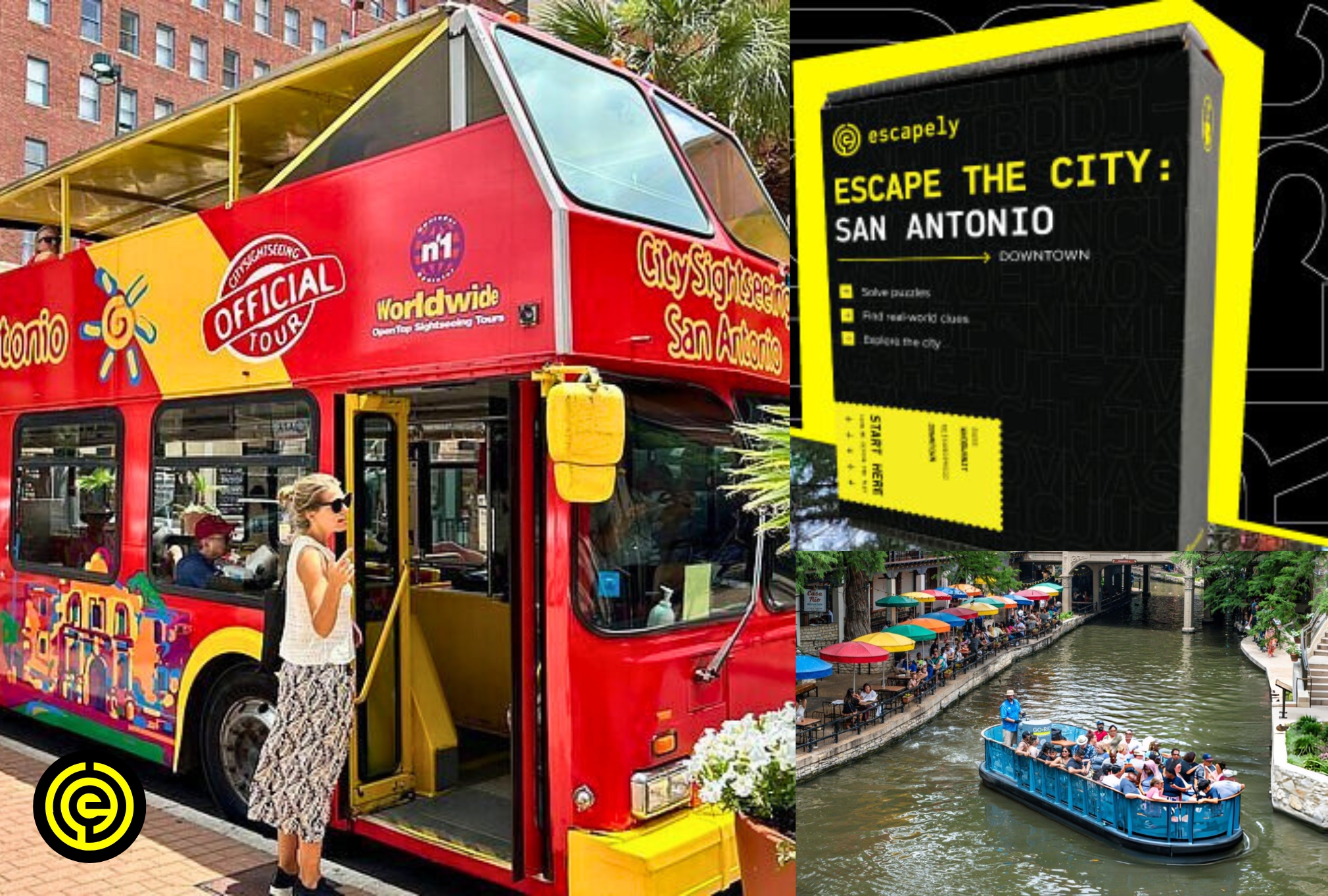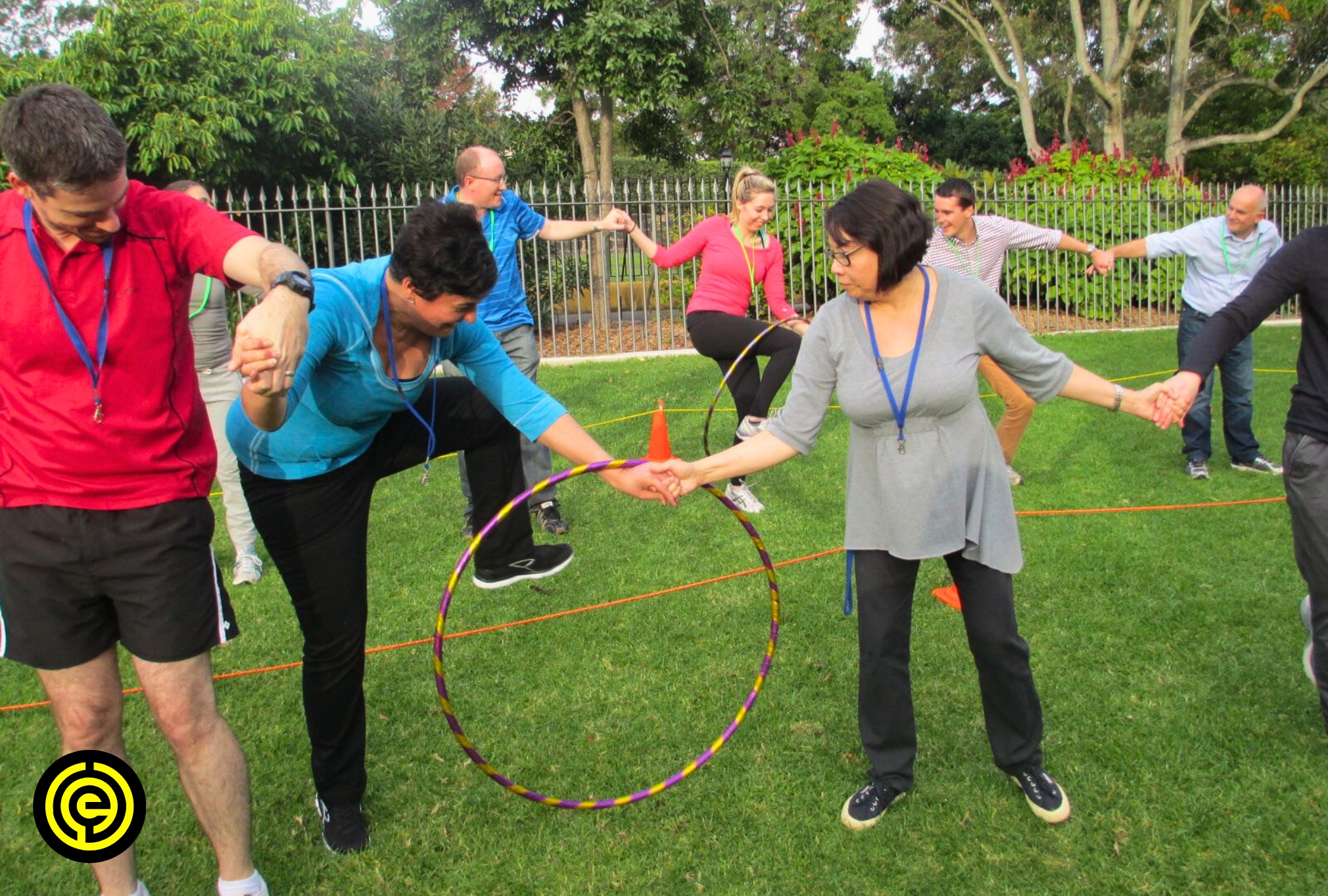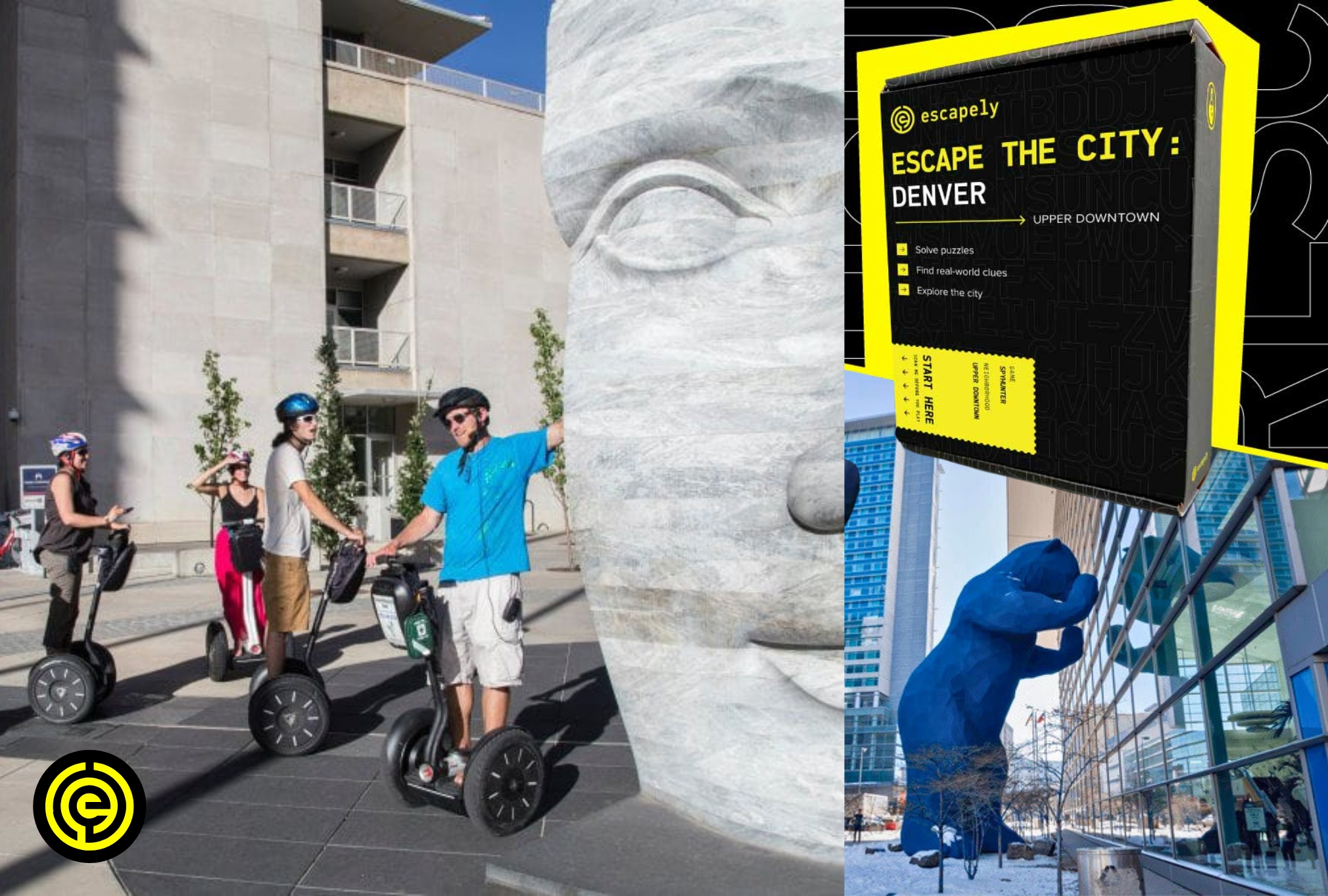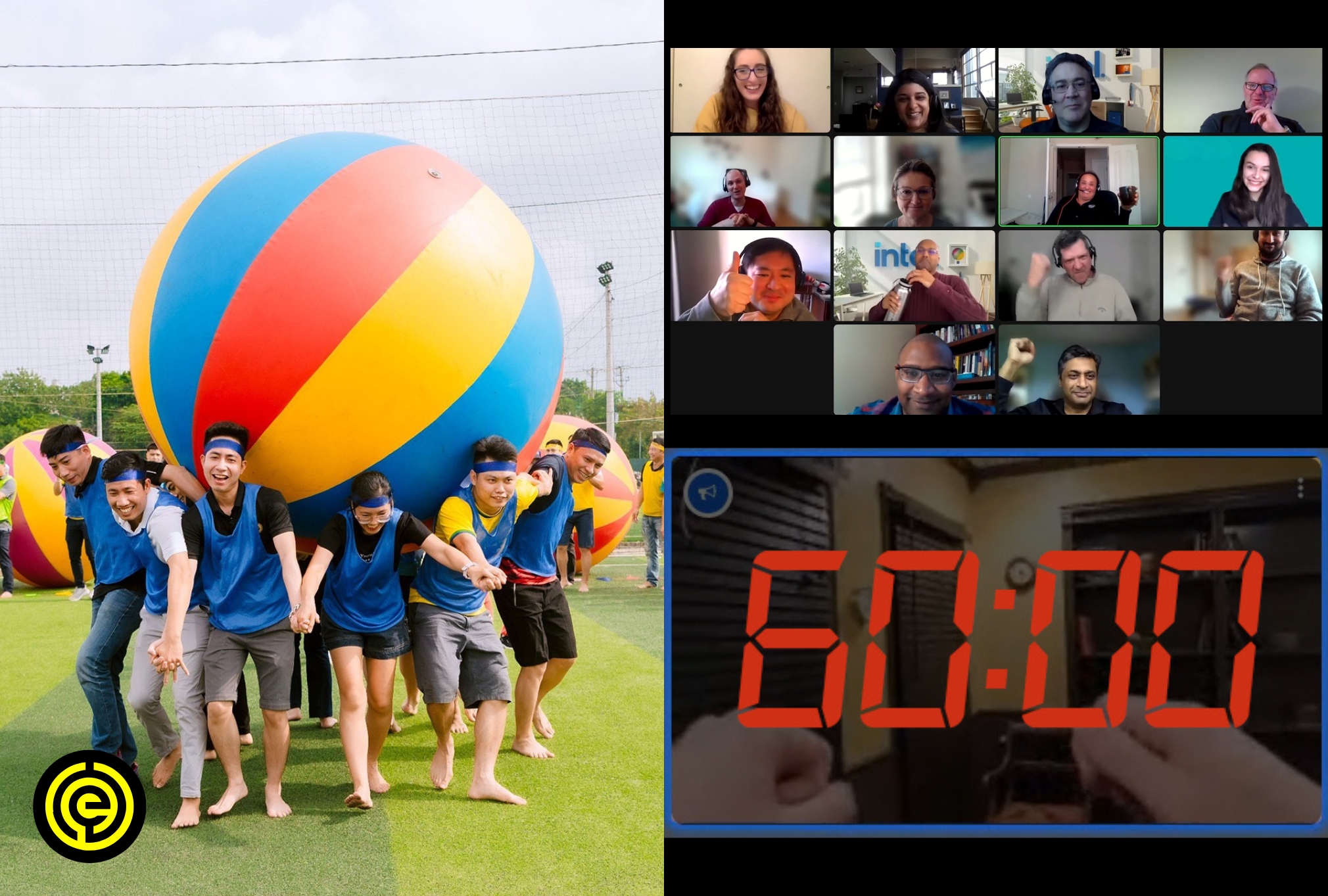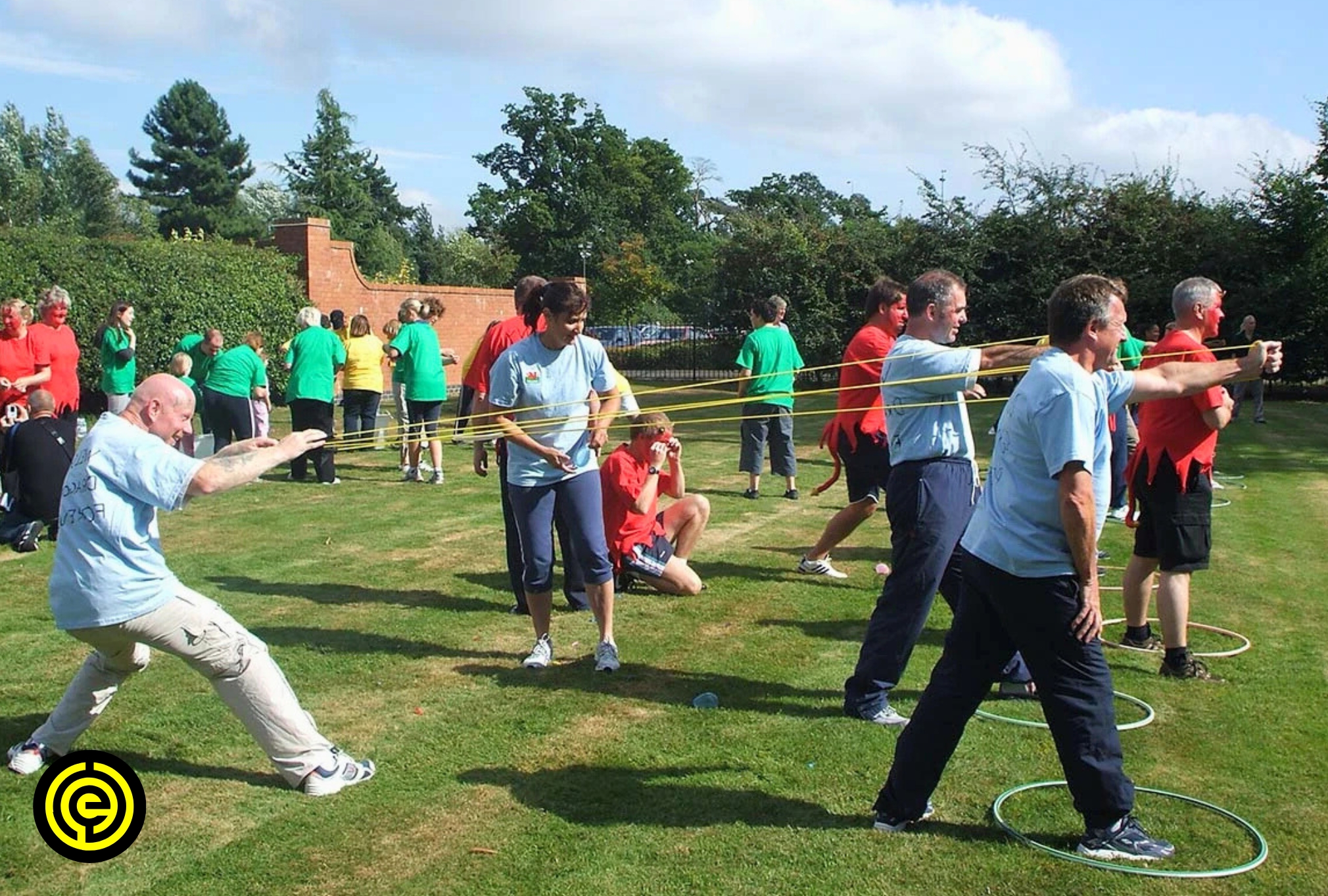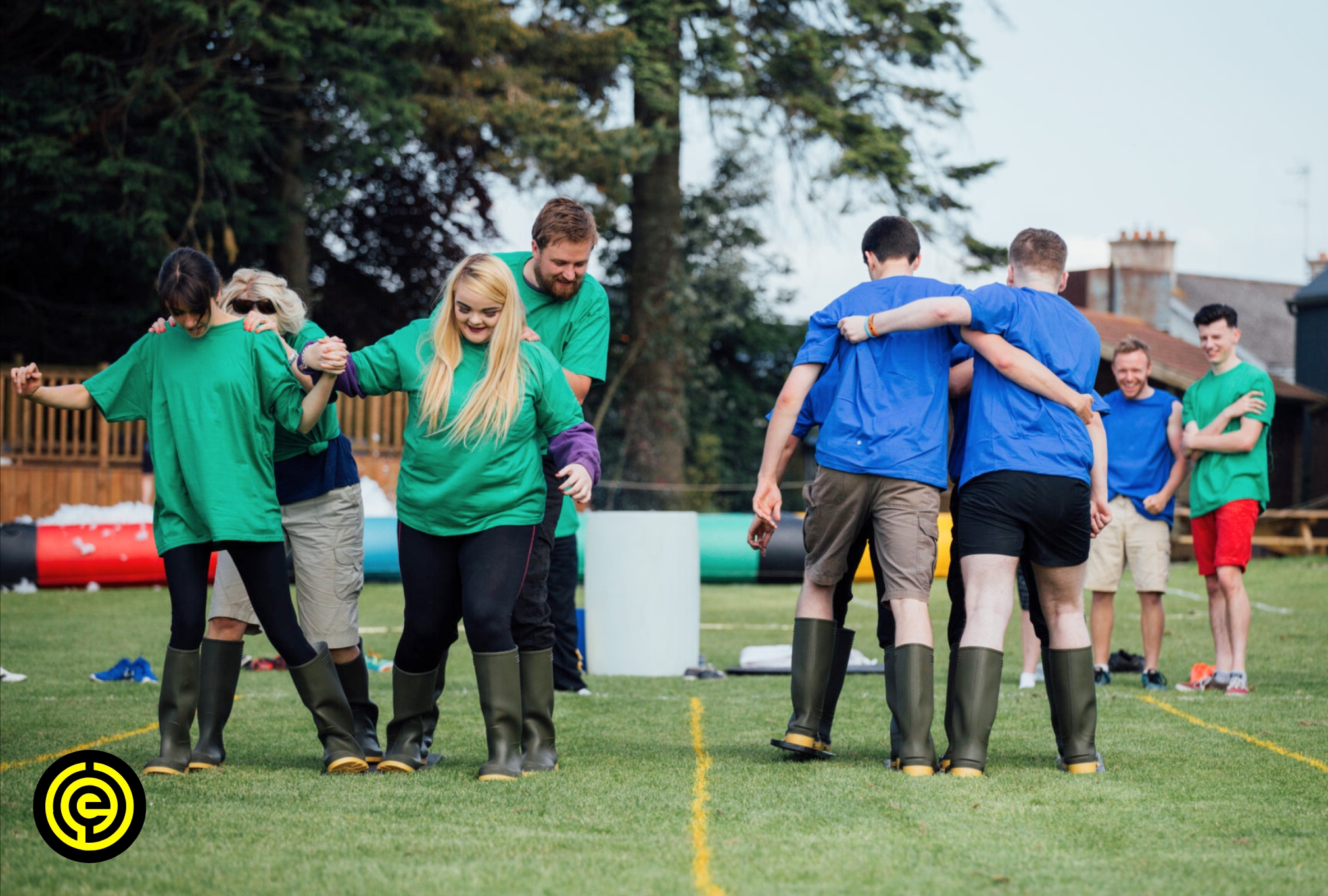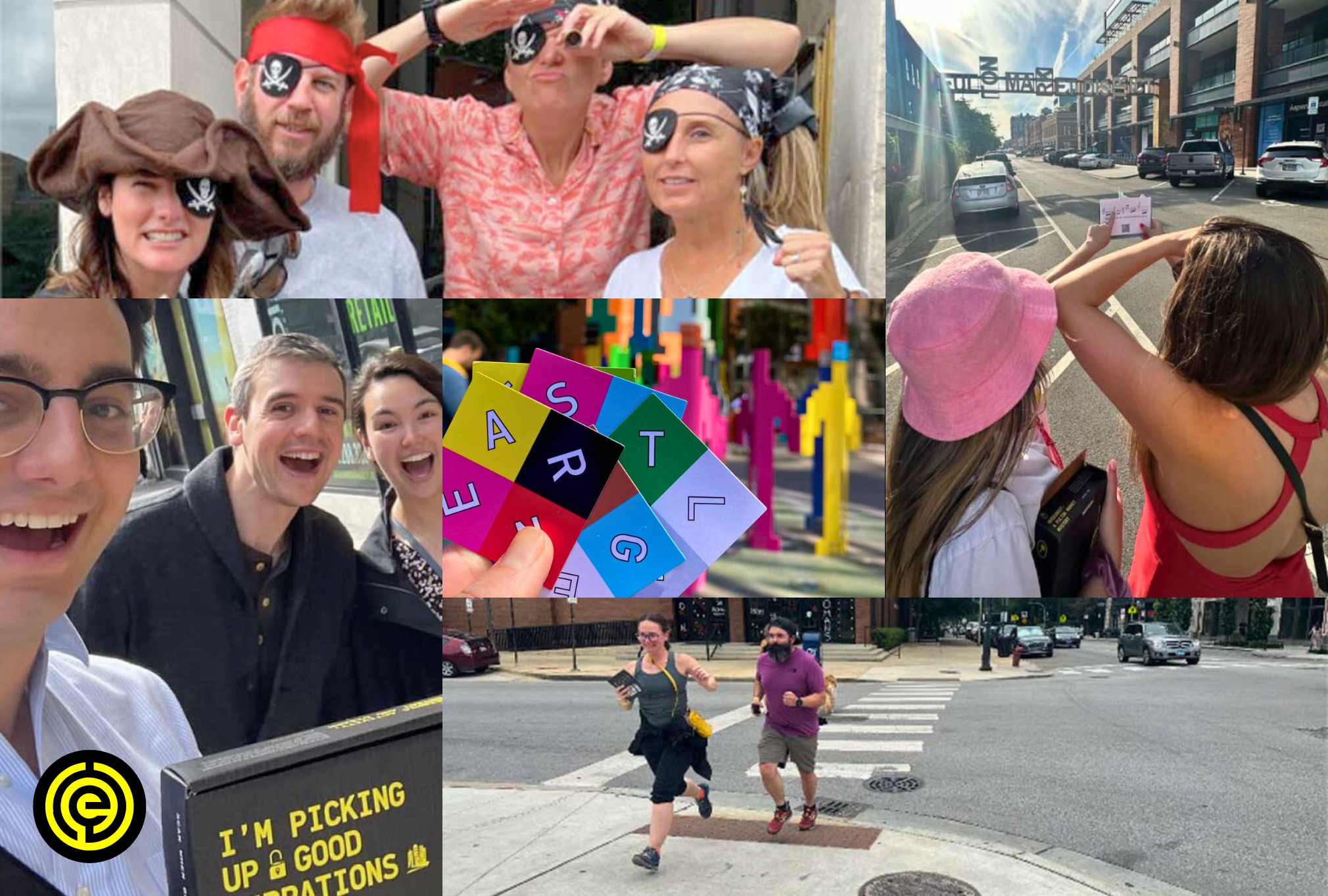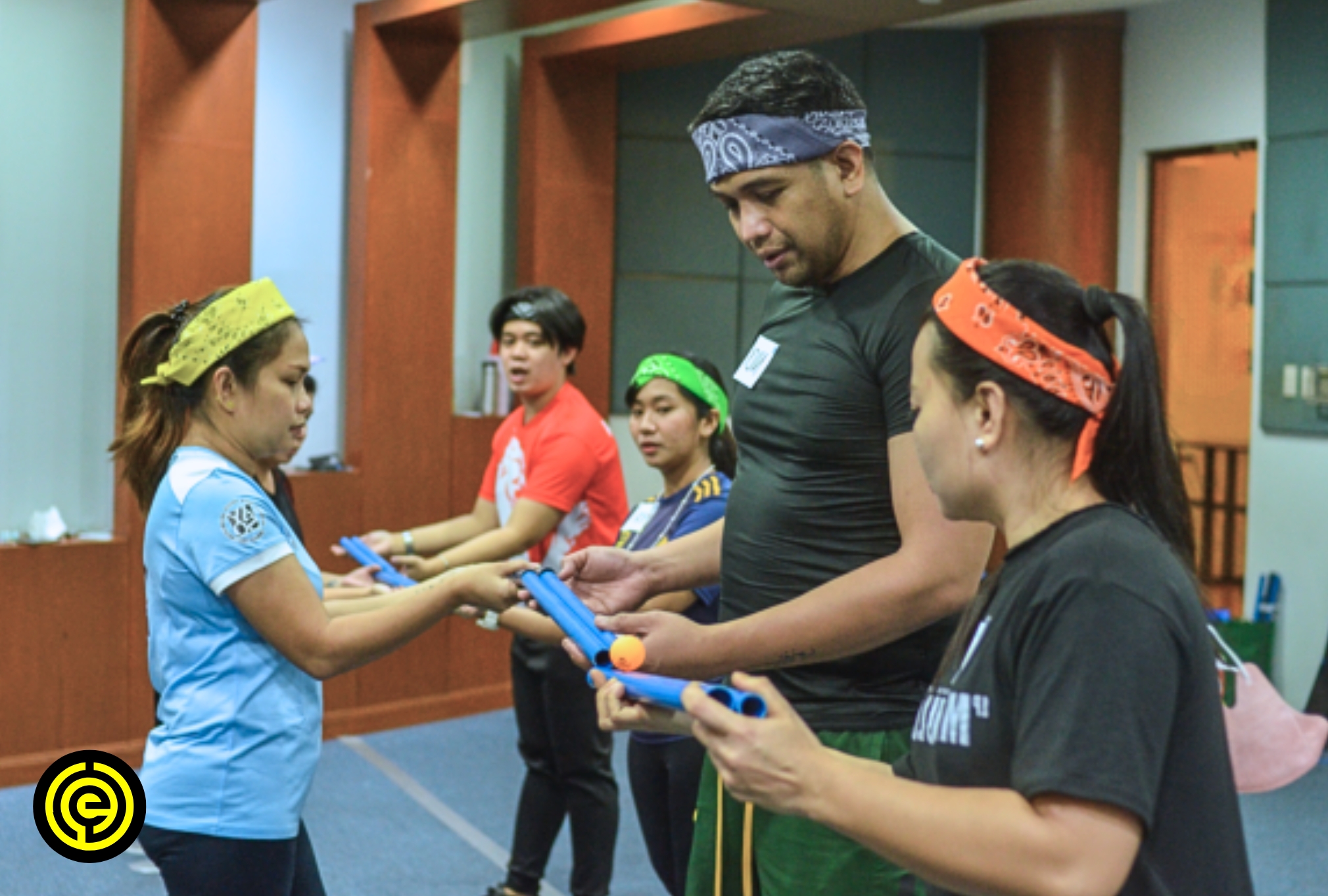Escape rooms are now a popular choice for companies who want to strengthen their teams. These immersive, puzzle-based experiences are great because they allow groups to work together to solve challenges within a set time.
The nature of escape room activities means they can improve real-world skills like teamwork, communication, critical thinking, and problem-solving.
This is why many companies have turned to team-building escape rooms and other team-building exercises to promote collaboration in a fun and engaging way.
From tech startups to corporate giants, businesses worldwide have embraced escape rooms’ benefits for improving team dynamics.
Want to know about how escape rooms work? Book a demo with us to experience it first-hand!
In this article, let’s explore why escape rooms are an effective tool for building more cohesive and better-connected teams.
What Makes Escape Rooms Ideal for Team Building?
Escape rooms are seen as one of the most effective team-building activities today. But what makes them such a powerful tool for bringing teams together?
Take a closer look at why escape rooms work so well for team building below.
Escape Rooms Create Challenging and Engaging Environments
Escape rooms are designed to push players out of their comfort zones by creating high-pressure situations. Here, quick thinking and teamwork are needed to make progress and (hopefully) complete challenges.
You should also note that the time-sensitive nature of an escape room team-building activity means that teams must stay focused and act fast. Every second counts as players work together to solve puzzles and move closer to escaping.
Aside from that, escape room events are also immersive and can keep participants engaged from start to finish.
Teams are thrown into a unique world where they must collaborate, communicate, and adapt on the fly. This experience can help your team create more meaningful connections in the workplace.
NOTE: Escapely’s other team-building experiences, like our scavenger quests and virtual escape rooms for remote teams, are tailored to create the same engaging and active environment.
Whether you are planning a corporate escape room event or looking to enhance teamwork in a remote setting, Escapely offers the perfect challenge to bring your team closer together.
Escape Rooms Promote Inclusivity
Escape rooms are also suitable for team building because they promote inclusivity. Every team member is vital to the game when playing in an escape room challenge.
Success will depend on the entire escape room team coming together to finish the game instead of relying on one person’s skills or expertise.
Escape rooms are intentionally designed with various puzzle types, ensuring all participants can contribute something unique to the escape room event. There is something for everyone, be it spotting clues, solving puzzles, or connecting ideas.
With this setup, even less vocal or experienced team members can step up, share their ideas, and contribute to the cause.
As team members work together to solve puzzles, they experience a sense of shared accomplishment, leading to a greater sense of belonging. This situation also gives everyone a role to play, regardless of job title or experience level.
Additionally, escape room capacity typically allows for large groups and gives everyone a chance to shine.
If you are looking for your company-wide team-building fix, try Escapely’s escape room corporate events. Our virtual experiences are built to promote inclusivity, ensuring that every participant feels valued and engaged.
Escape Rooms Encourage Role Assignment and Flexibility
In an escape room team-building experience, roles may be assigned as participants lean toward tasks that suit their strengths.
Leaders often emerge to guide the group, providing direction and ensuring everyone is on the same page.
They help keep the escape room team organized and motivated, ensuring time is used wisely, and the team moves efficiently towards that last door.
At the same time, other group members take on equally important roles. Some become puzzle solvers, focusing on the details and logic needed to crack the clues.
Others might be communicators, ensuring the team is aware of important discoveries or developments. This role diversity encourages each team member to bring their unique skills and interests to the escape room event.
Additionally, escape rooms demand flexibility. As new challenges arise, team members may need to switch roles quickly. For example, the puzzle solver might lead a specific challenge while the leader steps back and supports.
This fluidity mirrors real-life work environments, where adaptability is a must to overcome work hurdles and manage priorities.
A successful escape room activity demands that teams remain flexible and open to change, which is exactly what employees must do in the workplace.
Interested in trying out exciting and challenging escape room puzzles? Book a demo to learn more about our in person and virtual escape room offerings.
Escape Rooms Help Strengthen Communication Skills
One of the core elements of any escape room team-building activity is communication. Without it, solving the puzzles and completing the challenge becomes nearly impossible.
Team members must constantly share information, coordinate actions, and update each other on their progress. Every detail, no matter how small, could be the key to unlocking the next clue, so effective communication is fundamental.
The team has to make quick decisions, which means everyone needs to clearly understand the strategy. As the escape room team works through the puzzles, they will realize that the more effectively they communicate, the faster they can solve each challenge.
This focus on communication during the escape room activity translates directly into workplace improvements. Teams learn how to express ideas clearly and actively listen to ensure everyone’s voice is heard.
More importantly, escape rooms provide a safe, non-judgmental space to identify and address communication breakdowns.
When a team struggles with communication, the pressure of an escape room can highlight those weaknesses and help participants find better ways to interact.
Escape room corporate events allow teams to practice and refine communication skills in a fun, engrossing environment. Team members learn to rely on one another, leading to more effective communication during the event and at work.
Escape Rooms Boost Problem-Solving and Critical Thinking
Escape rooms are designed to challenge teams, pushing them to think critically and solve complex problems in a high-pressure environment. This is why escape room puzzles are usually multi-layered and require creative solutions.
Escape rooms force players to face problems from different angles, encouraging lateral thinking and innovation. They provide a space for teams to flex their problem-solving muscles in ways they might not typically experience at work.
For example, a team may encounter a puzzle that needs them to decode a message using clues hidden inside the room. While some members may focus on finding physical clues, others might work on deciphering patterns or connecting seemingly unrelated information.
This type of problem-solving requires collaboration, patience, and the ability to combine different thought processes. The escape room team learns to tackle challenges from multiple perspectives, strengthening their problem-solving skills.
The benefits of escape rooms go beyond the game itself. The process of working together to solve these intricate puzzles can make teams more adept at handling tasks in the workplace.
Escape rooms challenge individuals to think critically and apply their creativity to solve complex problems, skills that can be translated directly to real-life work.
After playing in a team-building escape room, employees are better equipped to approach work challenges with fresh perspectives and improved problem-solving abilities.
Escape Rooms Build Trust and Collaboration within the Team
Escape rooms are not just about solving puzzles but about building trust and fostering collaboration. In an escape room team-building activity, participants must rely on one another to succeed.
No single person can solve all the challenges alone, which forces team members to trust each other’s abilities and contributions. This reliance helps to strengthen the bond between teammates as they work together toward a common goal.
Collaboration is at the heart of every escape room event. Team members must constantly communicate, share insights, and piece together clues to solve the puzzles. For example, while one member of the escape room team may excel at finding hidden objects, another might be better at solving logic-based puzzles.
This diversity of skills requires the team to collaborate, pooling their talents to make progress. The shared responsibility of completing the room encourages everyone to play an active role, which leads to more meaningful collaboration.
The trust built during an escape room activity may also translate directly into the workplace. Once teams have done an escape room challenge, they leave with a deeper understanding of each other’s strengths and interests.
This shared experience strengthens team bonds, which may improve collaboration when faced with work-related tasks. Team members are more likely to work together smoothly, having already built a foundation of trust in a fun, low-pressure setting.
Escapely’s escape room corporate events are specifically designed to create these opportunities for collaboration and trust-building. By working together, teams develop stronger relationships and a better ability to collaborate on future projects.
Escape Rooms Improve Work Culture
Escape rooms do more than just offer a fun challenge; they actively contribute to building a positive work culture. The skills learned during an escape room event, such as communication, problem-solving, and collaboration, are directly transferable to the workplace.
As teams navigate the complexities of an escape room activity, they develop better ways of working together, which can lead to stronger relationships among coworkers.
Escape rooms also foster a culture of openness and teamwork. In these challenges, team members must share ideas, listen to each other, and work together to solve puzzles.
This encourages open communication and breaks down barriers between employees who might only interact occasionally.
In addition, companies that invest in team-building activities like escape room corporate events send a clear message to their employees: they value teamwork, collaboration, and employee well-being.
These investments help boost morale and increase job satisfaction, as employees feel appreciated and supported. For example, employees may return to work with a renewed sense of purpose and stronger connections to their coworkers after completing a team-building escape room.
Whether in-person or virtual, these events leave lasting impacts on teams, making the workplace more enjoyable and productive.
Escape Rooms Provide Opportunities for Leadership Development
Escape rooms create the perfect environment for leadership development. In any escape room team-building activity, leaders may emerge as tasks must be organized, efforts coordinated, and decisions made.
This environment allows both current leaders and those with leadership potential to step up and guide the group. In these high-pressure situations, leaders can hone their skills in real-time, managing the escape room team while keeping everyone focused on the end goal.
Meanwhile, others may step up to lead the group. For example, someone might take charge of organizing team efforts, confirming that each puzzle is being addressed, while another may take the lead in coordinating communication among the group.
This fluidity in leadership often mirrors real-world work environments, where leaders may change while other leads must adapt to changing situations and guide their teams effectively.
In addition, the high-stakes environment of an escape room activity pushes leaders to refine their decision-making and team management skills.
The ability to remain calm under pressure, delegate tasks efficiently, and make quick, informed decisions are all essential qualities for effective leadership. As participants face the challenges of the escape room, they can practice these skills in a safe yet challenging setting.
Interested in trying out exciting and challenging escape room puzzles? Book a demo to learn more about our in person and virtual escape room offerings.
Escape Rooms Foster Emotional Intelligence
Escape rooms not only test problem-solving and teamwork but also play a major role in fostering emotional intelligence in players.
As participants work through an escape room event, they can encounter moments of difficulty that can lead to frustration.
In these moments, emotional intelligence becomes vital, and team members must recognize stress and manage it effectively. At the same time, they must also be supportive of their teammates.
For example, when a puzzle stumps the group, emotionally intelligent participants will step up to offer encouragement or suggest alternative approaches instead of becoming discouraged or placing blame.
As you may know, emotional intelligence is critical in the workplace. It directly impacts how well employees can resolve conflicts, communicate effectively, and build strong interpersonal relationships.
Through escape rooms, you can give your team a safe space to practice these skills in real-time. Escape rooms also help participants become more aware of their emotions and those of others on their team.
By learning to respond empathetically to their teammates’ needs, team members can improve their ability to collaborate and handle challenging situations at work.
Escape Rooms Are Fun and Engaging Experiences
Lastly, escape rooms are fun.
They provide an exciting and engaging experience that is removed from the traditional work environment.
The immersion offered by escape room events helps relieve stress and create a relaxed atmosphere where team members can bond in ways not possible in a typical office setting.
When participants are fully engaged and enjoying themselves, they are more open to collaborating and communicating with their peers. In turn, there is a chance to better connect with their team members.
These positive impressions can lead to improved relationships back at the office, with team members feeling more aligned. A team-building escape room thus not only improves skills but also builds friendships and workplace culture.
Escapely’s escape room corporate events are designed to be both enjoyable and effective, offering teams the perfect balance of fun and teamwork.
These experiences leave lasting impressions, helping teams to bond, communicate better, and enjoy a more collaborative work environment.
Frequently Asked Questions (FAQs)
In this section, we answer more common questions about escape rooms.
Are escape rooms worth the money?
Yes, though, it will depend on your budget and the quality of escape rooms you get for your team-building activities. However, if you decide solely on escape rooms’ benefits, they are well worth it.
After all, escape rooms offer more than fun experiences. They help improve communication, collaboration, and problem-solving skills, making them a must for strengthening team dynamics.
Escape room corporate events provide a unique and engaging way for teams to bond, and the skills learned in these environments often translate directly into the workplace.
How many people can do escape rooms?
Escape room capacity varies depending on the venue and specific room, but most escape rooms can accommodate teams of 4 to 10 people.
Some venues offer larger rooms for bigger groups or allow multiple teams to participate simultaneously in different rooms.
Can remote teams do escape rooms for team-building events?
Yes, remote teams can participate in virtual escape rooms for team-building events. Many escape room companies, including Escapely, offer virtual experiences that allow remote teams to work together online.
These virtual escape room activities are just as engaging and offer the same benefits as in-person events. They help remote teams improve communication, collaboration, and problem-solving while having fun together.
Key Takeaways on Why Escape Rooms Are Good For Team Building
Escape rooms are practical team-building tools. They offer a fun, engaging, and immersive experience that promotes collaboration and strengthens relationships.
Whether in-person or virtual, escape rooms challenge teams to work together, think critically, and communicate well while having a great time.
Here are some reasons why escape rooms are such a cool team-building activity:
- Challenging environments push teams out of their comfort zones, developing teamwork and problem-solving skills.
- Inclusivity ensures every team member can contribute, fostering a sense of belonging and collaboration.
- Role flexibility allows participants to assume different responsibilities, mirroring real-world workplace dynamics.
- Improved communication is critical in escape rooms; these translate directly into better workplace interactions.
- Problem-solving and critical thinking are exercised through intricate puzzles that challenge participants to think creatively.
- Trust and collaboration are built as team members rely on each other to succeed, strengthening workplace bonds.
- Work culture is enriched as teams learn to work together in a positive, collaborative environment.
- Leadership development is fostered as participants take on leadership roles, honing their decision-making skills.
- Emotional intelligence is cultivated as team members learn to manage stress, offer support, and empathize with each other.
- Fun and engaging experiences leave lasting positive impressions, boosting morale and improving workplace relationships.
Ready to see how an escape room can transform your team dynamics? Book a demo with Escapely today and experience the ultimate team-building activity firsthand!











